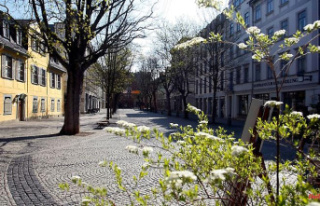Rostock (dpa/mv) - According to the state government, Mecklenburg-Western Pomerania must accelerate the expansion of wind power. Economic State Secretary Ines Jesse (SPD) said on Wednesday at the Wind Future Conference that this was necessary in order to achieve the energy and economic policy goals
According to the ministry, MV must have designated 1.4 percent of its state area for wind energy use by 2027 and 2.1 percent by 2032 in order to achieve the ambitious area targets. Jesse said that for greater public acceptance, the communities affected would have to share in the income from wind energy. "In addition, we need a nationwide uniform regulation for network charges." There are strong regional differences here. "Mecklenburg-Western Pomerania has the highest electricity prices. The burden must be shared equally across Germany." Prime Minister Manuela Schwesig (SPD) had made similar statements in the past.
Jesse continued: "The aim of the state government is to cover all of the state's energy needs for electricity, heat and mobility from renewable sources by 2035 and to be climate-neutral by 2040 at the latest."
Most recently, surveys by Deutsche WindGuard had shown that the construction of new wind turbines in Mecklenburg-Western Pomerania is only slowly getting back on track. According to this, eight wind turbines were newly connected to the grid in the north-east in the first half of 2022. In the first six months of 2010 to 2018, there were an average of 32, four times as many. The issuing of building permits is also lagging far behind previous figures. According to the information, only 16 new plants have been approved in the north-east, a third of previous years. The German Wind Energy Association had also noted a lull in new construction for offshore wind farms in the Baltic Sea.












